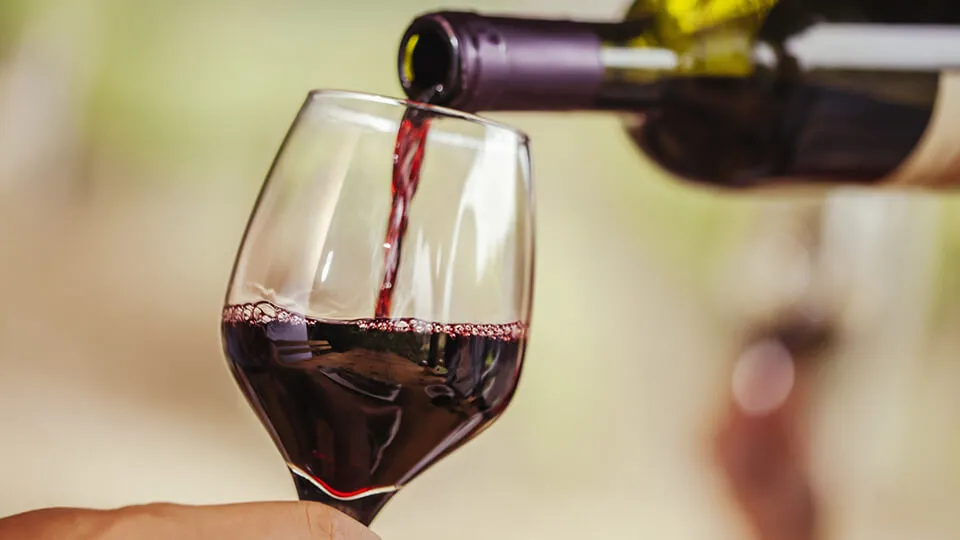
- Share on Facebook2
- Share on Pinterest
- Share on Twitter
When you crack open a bottle of wine at home, do you usually have leftovers? At my house, we often do. In the interest of not getting overly tipsy, sometimes a bottle of wine still has quite a bit remaining inside at the end of the night… and those leftovers have gone to waste more than once because my husband and I don’t drink often.
Of course, leftover wine can be turned into wine vinegar (both the red and white varieties), but I’ve been lazy in the past, I admit it. Whether you often have extra wine left over in the bottle after your evening or not, most wine drinkers know that once opened, a bottle doesn’t keep very long. For most wines, it’s about a week.
If storage time for opened wine is important to you, you have an alternative to bottled wine: good old boxed wine. When it comes to boxed wines, people often have differing opinions. Vastly differing opinions. Some think it’s a great anytime wine, others only reserve it for sangria and other types of party punch, and yet others refuse to touch the stuff with a ten-foot pole. It’s quite controversial in some circles.
However, if you’re the type who enjoys it, know that it can last up to six weeks when opened. That’s six times longer than bottled wines.
The longest lasting wine

That’s right, you read correctly. Boxed wine officially wins the title of longest lasting wine… once opened, that is. The reason that boxed wine is able to store for so long has to do with the technology used in its manufacture. The wine bag, which sits inside the box, keeps air, light and bacteria from getting inside. When you empty the wine into your glass, the bag deflates, so that extra air is not trapped within. Plus, the spout on the box is resealable.
All of this adds up to extra-long storage time, so you can have a glass of wine in the evenings throughout the month when it hits your fancy, and not worry about your wine going bad before you get to it (unless you don’t get to it for a really long time).
Some health benefits of wine
If you’ve been following health news for the last several years, you have probably heard the media abuzz with news of the health benefits of wine, especially red wine. In moderation (no more than one glass a day for women, and two for men), drinking red wine may help to:
- Increase your lifespan and slow aging (thanks to the presence of resveratrol, which needs more research performed on it, but some research has had exciting results)
- Combatting chronic inflammation
- Potentially helping to prevent and fight cancer
- Potentially improving memory and cognition (thanks to resveratrol and flavonoid antioxidants)
- Potentially fighting certain infections
- Reducing the risk of developing blood clots
- Supporting optimal cardiovascular health
- Lowering LDL “bad” cholesterol
- Raising HDL “good” cholesterol
- Potentially helping to balance blood sugar levels
- Aiding in a healthy weight loss plan
These amazing benefits apply whether you’re drinking red wine from a box or a bottle. White wine is a healthy choice too. It does not contain the resveratrol that red wine does, and has a different nutritional profile, but it does still contain antioxidants. White wine, like red wine, has been linked to potentially improving cholesterol levels.
So, there are a few reasons to feel good about your wine, whether it’s in a bottle or a box. Drinking too much, of course, is highly dangerous to all aspects of your health, but drinking just a little may be quite healthy. That’s the good news, however…
The downsides of wine in a box

Before you go out and purchase a big box of wine for its superior storage powers, there are a few “cons” of boxed wine you may want to be aware of.
- You can’t age boxed wine. Wine does not age when it is in a vacuum-sealed plastic bag. Most wines don’t actually need extra aging, but if you’re looking to do some high-quality wine aging in your cellar, boxed wine is not the way to go.
- Boxed wine expires one year after manufacture. So, they stay good longer once opened, but you can’t keep a box indefinitely like you can some wine bottles.
- Some boxed wines may pose the potential danger of bisphenol A (BPA) exposure. This is because the wine bag inside the box is made of plastic, often plastic number seven. BPA, especially long-term exposure to BPA, has been linked with hormonal imbalances, neurological changes, reproductive difficulties and a higher risk of heart disease, diabetes and certain cancers. Not something you want in your body. Some boxed wines do not contain BPA, so check your labels carefully to find one that does not.
- Boxed wines are generally on the lower end of the wine quality and price range. Some research has found that lower-priced wines in general (both boxed wines and lower-end bottled wines) contain higher levels of arsenic. This is another substance you don’t want accumulating in your body (it’s rat poison, after all). So, make sure you do your research on a vineyard and its practices before you choose a favorite.
- You won’t get as much variety with boxed wine as you will with bottled wine.
Whichever wine you choose…
Choose organic. That way, you’ll know that you’re not getting a slew of pesticides and herbicides in your glass. Just the good stuff.
So, there you have it. A few reasons to enjoy boxed wine, and a few precautions to take when you select it. Haters of the wine-in-a-box, just know that boxed wine merchants are saying that quality is going up, so maybe it’s worth one more try? Let us know if your opinion changes!
— Tanya Mead
- Share on Facebook2
- Share on Pinterest
- Share on Twitter

